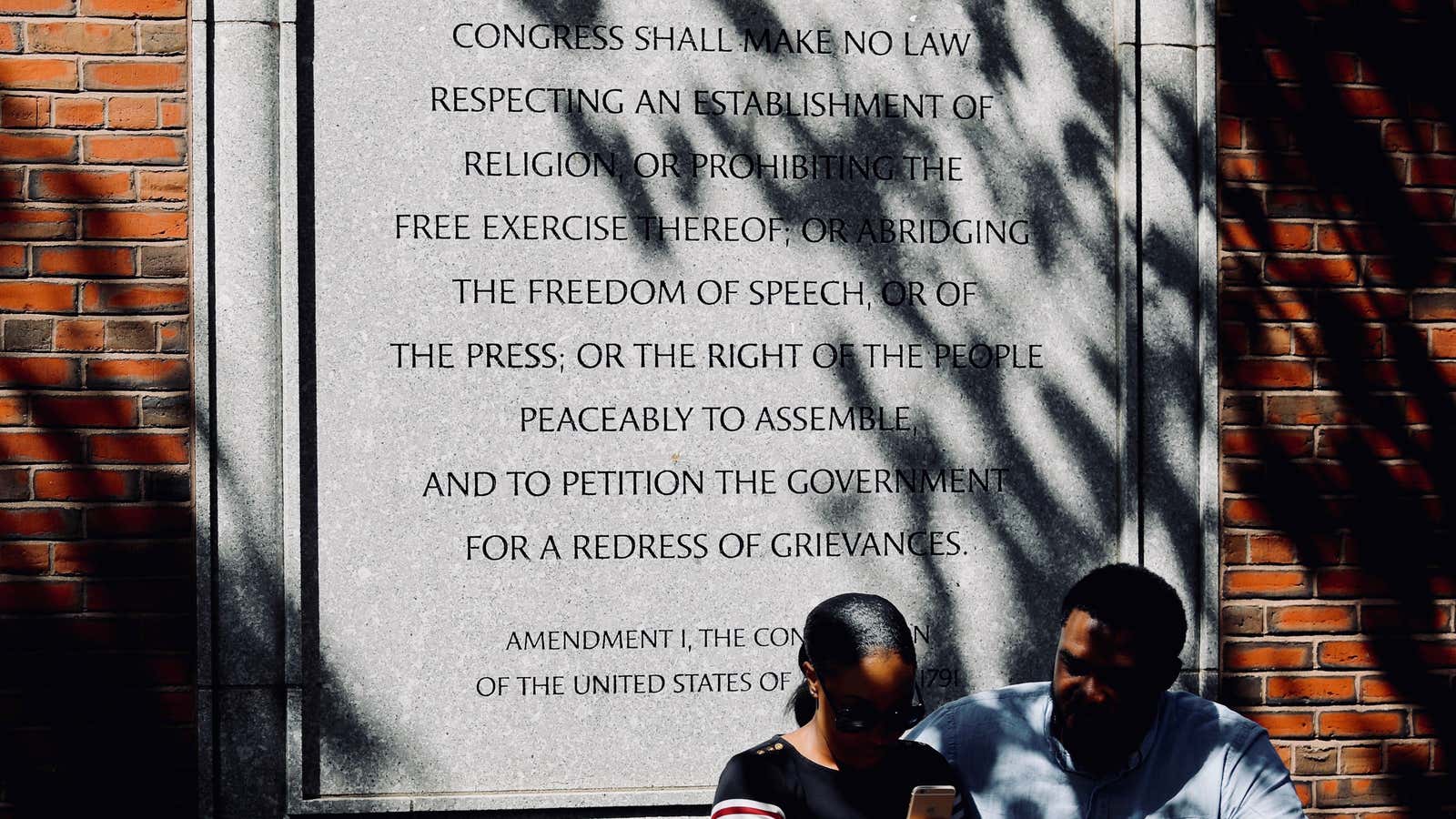Conservative attorney George Conway, husband of White House advisor Kellyanne Conway, has been vocal about his distaste for his wife’s boss, Donald Trump. He has been known to subtweet the president and has said he regrets introducing his wife to Trump at all. And now, he’s helped to form a group for conservative and libertarian lawyers who argue Trump is undermining the rule of law.
The 14 founding members of Checks and Balances are prominent attorneys—law professors, private practitioners, and former government lawyers—who say they are “standing up for the principles of constitutional governance.” Their mission statement explains:
We believe in the rule of law, the power of truth, the independence of the criminal justice system, the imperative of individual rights, and the necessity of civil discourse. We believe these principles apply regardless of the party or persons in power. We believe in “a government of laws, not of men.”
We believe in the Constitution. We believe in free speech, a free press, separation of powers, and limited government. We have faith in the resiliency of the American experiment.
Although the Checks and Balances website doesn’t call out Donald Trump by name, many of the group’s members have. John Bellinger III, now a partner at Arnold & Porter and formerly senior associate counsel to US president George W. Bush, said in a New York Times interview (paywall) on Nov. 14, “Conservative lawyers are not doing enough to protect constitutional principles that are being undermined by the statements and actions of this president.”
Orin Kerr, another founding member of Checks and Balances, is a professor at the University of Southern California’s law school and former trial attorney in the Department of Justice. He is also an active voice on Twitter, where he is frequently critical of the president.
The formation of Checks and Balances was announced last week, just ahead of the Nov. 15 annual Federalist Society gathering in Washington. The society is largely responsible for putting together Trump’s list of prospective US Supreme Court justices; its head, Leonard Leo, was very visible on television in July ahead of Brett Kavanaugh’s nomination, discussing his role in advising the president on potential picks.
Leo told Axios on Nov. 18 that he finds “the underlying premise of the [Checks and Balances] group rather offensive.” He doesn’t believe that conservatives have grown afraid to talk about the rule of law during the Trump administration. “[P]eople aren’t afraid, many people just don’t agree that there’s a constitutional crisis and don’t agree with the people who have signed up with this group,” said Leo, who was speaking personally and not on behalf of the Federalist Society.
Today, Kerr, a Federalist Society member, tweeted that Leo’s view is “hard to square” with the support expressed for Checks and Balances at the society’s recent convention.
The members of Checks and Balances say they don’t plan to speak out against every act of the administration. For example, they support Trumps’ approach to deregulation. They do, however, want to make it clear that among conservatives there is opposition to the president’s attitude toward prized American constitutional principles, like a free press and separation of powers. “We seek to provide a voice and a network for like-minded attorneys to discuss these ideas, and we hope that they will join with us to stand up for these principles,” the group says in its mission statement.
Stuart Gerson, who was the acting US attorney general in 1993 during the start of the Clinton administration, told the National Law Journal (paywall) on Nov. 14, “These are perilous times for the nation…this was a particularly right time to speak out in favor of the rule of law on the conservative side.”
Gerson noted that the group is not explicitly political, despite its conservative bent—it stands for principles that would appeal to those on the left as well. “I would hope the values we seek to uphold are transcendent,” he said.
